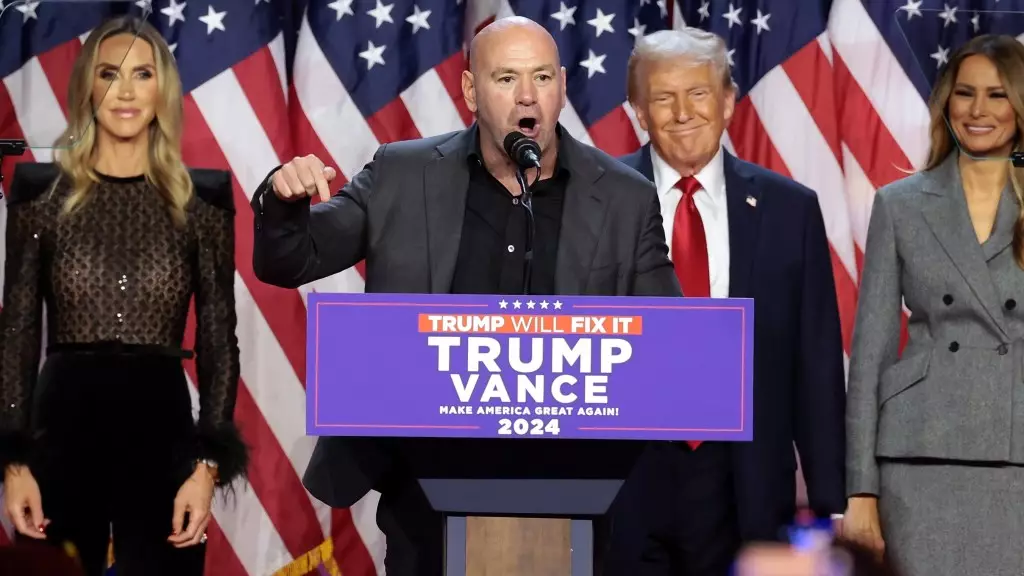In a stunning turn of events, former President Donald Trump emerged victorious once again, this time defeating Vice President Kamala Harris in the recent 2024 election. Just four years prior, Trump was grappling with the fallout of the 2020 election loss to Joe Biden, where he cemented his reputation as a controversial and divisive figure. Accusations of electoral fraud, coupled with his role in the events surrounding the January 6 Capitol riot, had relegated him to the margins of American political life. His resurgence to the forefront symbolizes one of the most remarkable comebacks in the history of the U.S. political landscape.
A critical ally in Trump’s resurgence was UFC CEO Dana White, whose staunch support provided Trump with valuable outreach, particularly to younger demographics. By leveraging his platform in mixed martial arts, White was instrumental in connecting Trump with male voters, a demographic crucial to his campaign’s success. On the night of his election victory, Trump publicly acknowledged White’s contribution, inviting him onstage, which underscored the importance of media and celebrity connections in modern political campaigning. White’s speech not only celebrated Trump’s win but also framed it as a victory for personal resilience against the political “machine” that attempted to undermine him.
Trump’s campaign benefitted immensely from appealing to a core base, utilizing non-traditional media channels to connect with voters. His extensive appearance on platforms like podcasts—especially his episode on “The Joe Rogan Experience”—illustrates a broader cultural shift in how political narratives are disseminated. By forging relationships with influencers and podcasters such as the Nelk Boys and comedians like Theo Von, Trump accessed a new, vibrant audience. This strategic positioning in popular culture enabled him to bypass conventional media narratives that often painted him negatively, effectively crafting a more favorable public image.
White’s remarks during the victory celebration echoed a recurrent theme of resilience—highlighting Trump’s relentless drive to push forward despite the obstacles faced during his tenure. This narrative of unwavering determination resonates deeply with part of the American electorate that sees Trump not just as a politician, but as a symbol of defiance against perceived injustices in the political arena. White’s characterization of Trump as “the most resilient, hard-working man” further solidified this image, appealing to voters who value perseverance in the face of adversity.
Trump’s election win signifies not just his political resurgence but also the continuing evolution of American politics, where traditional pathways to power are increasingly complemented by pop culture and unconventional media engagements. This trend raises important questions about accountability, the nature of political support, and how future candidates may leverage similar strategies. As Trump navigates the challenges of his new term, it remains to be seen how his administration will address the divisive issues that linger from his past, and whether he can unify a fractured electorate moving forward.

